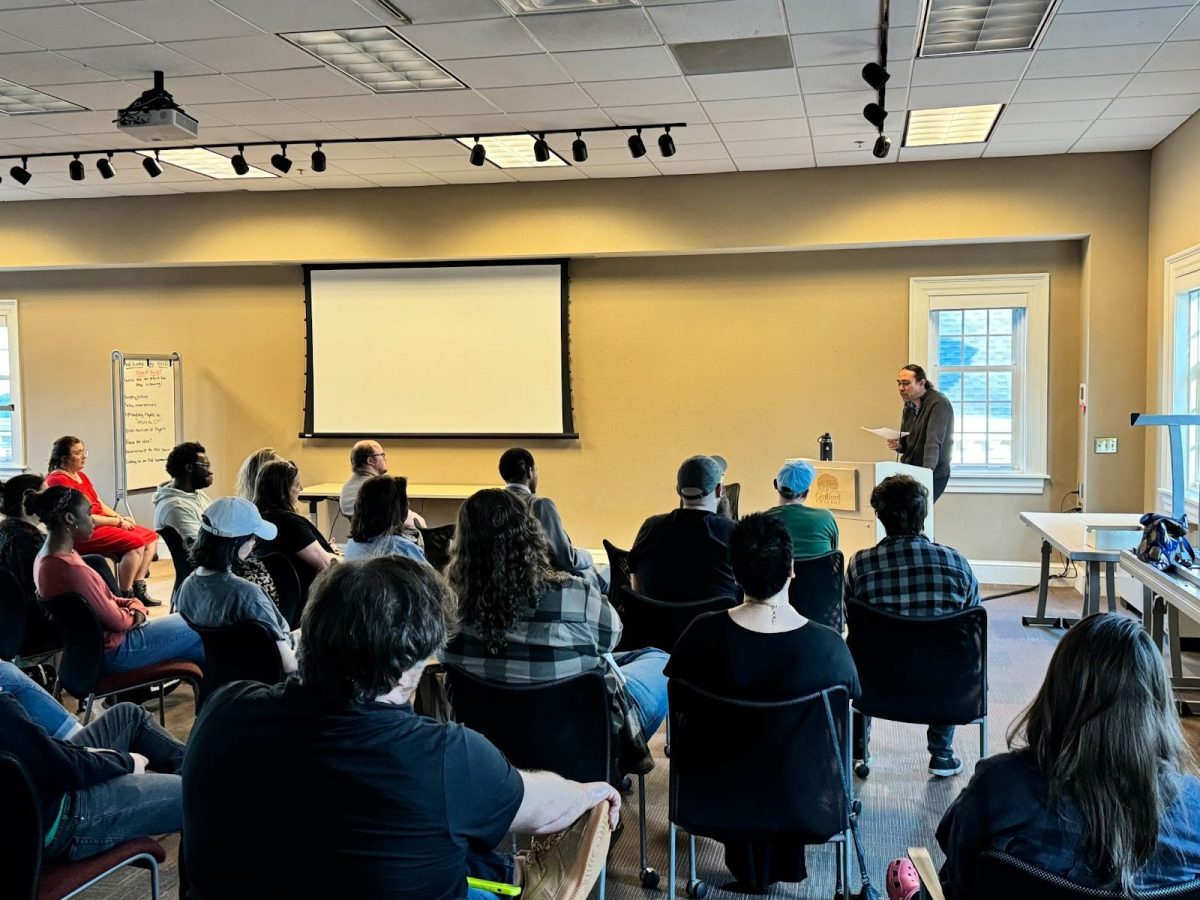Guilford College seems to be a unique educational institution — one of two private colleges to declare itself “anti-racist” and one of few with a judicial system based on restorative justice. But how do these commitments play out?
Without guidance, institutions and their employees may reinforce unequal, pervasive racial dynamics. Thus it is important to look closely at systems that are in place, especially those involving the administering of justice.
In Guilford’s case, the Community Accountability Project process is as follows: a student is documented and they attend a meeting with someone from Campus Life to determine if they are responsible. If so, the student goes to a hearing consisting of one facilitator and three trained community members — students, faculty or staff.
When I inquired about what this training consisted of, Director of Judicial Affairs Sandy Bowles described it as only a “conversation.”
“There isn’t a whole lot of formal training,” said Bowles. “We talk about how we are going to handle stuff, but a lot of the time … I take the lead and (other staff) are just watching.”
So, what are the consequences of a staff not trained in cultural sensitivity or multicultural education?
“Being a person of color, you don’t really get fairness,” said senior Joyce Medina, a Hispanos Unidos at Guilford member who knows students who have been through the judicial process. From her understanding, “they don’t really treat you equally.”
An anonymous student of color was told her hearing would be with a diverse group of faculty, staff and students, but instead she was the only person of color in the meeting, which she described as an “isolating” experience.
“I could tell they were only listening to half of what I was saying,” she said.
“(The process) takes a toll on you mentally, emotionally,” said senior economics major Cory Collins. “It (makes it) hard to focus on school.”
Without intentional sensitivity training or multicultural education workshops, the Judicial Affairs Office cannot expect to treat all students equally.
“One of the biggest weaknesses is how many decisions are made by one person or kind of oligarchy-style,” said junior and judicial advocate Julia Draper.
Students can write a letter of appeal to Dean of Students Aaron Fetrow.
“(However,) they almost never get accepted,” Draper said. “Fetrow usually agrees with the decision they made.”
Where is space for accountability in this?
Bowles expressed needing more feedback from students. But for some students of color, their experiences have turned them away from reaching out.
The anonymous female student said the office is “not a resource for students of color.”
“I wouldn’t feel comfortable going to them,” said Medina.
Collins sought help from campus life about a difficult roommate situation. He was not helped and given the impression he should “tough it out.”
This pattern mirrors many people of color’s experiences with police.
As Michelle Alexander wrote in her New York Times bestseller, “The New Jim Crow,” “The last thing most people want to do after experiencing a frightening and intrusive encounter with the police is show up at the police station where the officer works and attract more attention to themselves.”
“I think it’s really awkward when you have to go into a CAP meeting and you see people who you drink with on the weekends,” said Collins. “They are sitting in that chair and they are looking at you and they’re like, ‘You shouldn’t be doing this,’ … and then you see them at the same party as you.”
A student representative does not guarantee CAP will be supportive to the charged student, especially if they received little training. Although student participation is a creative way to incorporate different community voices, it seems to be a convenient way to avoid hiring resources such as social workers or community psychologists.
Guilford must invest in creating an inclusive campus or our declarations will become misnomers.













Alejandro Carballo • Feb 16, 2014 at 8:04 pm
This writer is a beast and always speaks the truth.